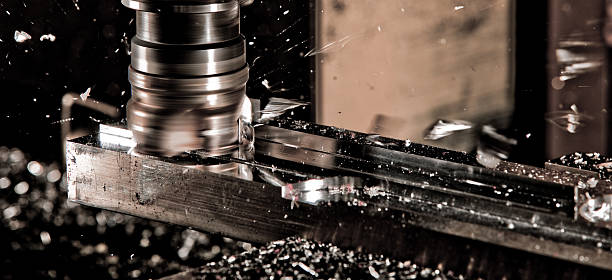Nov 20 , 2023

In the dynamic realm of custom machining and manufacturing, CNC milling stands out as a pivotal and versatile technique that has significantly evolved over the years. This article aims to provide a comprehensive understanding of CNC milling, shedding light on its applications, development, and the crucial role it plays in meeting the stringent requirements of various industries.
CNC milling is a sophisticated computer numerical control (CNC) process that involves the use of rotating cutting tools to remove material from a workpiece, shaping it into a customized form with precision and accuracy. Unlike traditional machining methods, CNC milling allows manufacturers to create intricate and complex parts while adhering to strict tolerance requirements. It is a method that has become indispensable in the world of modern manufacturing.
Over the years, CNC milling technology has undergone significant advancements, enabling the production of precision parts that meet the rigorous demands of today's industries. The continuous refinement of CNC milling machines has resulted in enhanced capabilities, making them instrumental in various sectors such as aerospace, automotive, robotics, and the medical industry. The versatility of CNC milling has led to its widespread application across a myriad of manufacturing domains.
In the aerospace industry, where precision is paramount, CNC milling plays a crucial role in the manufacturing of intricate components. From lightweight aircraft parts to complex engine components, CNC milling ensures the production of high-quality, dimensionally accurate parts that meet the stringent standards of the aerospace sector. The adaptability of CNC milling machines allows for the creation of intricate shapes and features, contributing to the overall efficiency and safety of aerospace systems.
In the automotive industry, CNC milling has become a driving force behind the production of precision components. From engine parts to intricate interior features, CNC milling machines contribute to the creation of high-performance and reliable automotive components. The ability to consistently achieve tight tolerances and intricate designs makes CNC milling an essential process in the pursuit of automotive excellence.
The field of robotics relies heavily on precision and intricacy, and CNC milling plays a vital role in shaping the components that power these technological marvels. The precision offered by CNC milling machines ensures that robotic components fit seamlessly, enhancing overall functionality and efficiency. Whether it's manufacturing joints, gears, or specialized components, CNC milling is at the forefront of enabling advancements in robotics.
One of the key strengths of CNC milling is its ability to achieve unparalleled precision and adherence to tight tolerances. The computerized control of the milling process ensures consistency in every operation, resulting in parts that meet or exceed industry standards. This level of precision is critical in industries where even the slightest deviation can have significant consequences.
The versatility of CNC milling machines allows manufacturers to produce components with intricate shapes and features that would be challenging or impossible with traditional machining methods. Whether it's the creation of contoured surfaces, pockets, or complex geometries, CNC milling empowers manufacturers to bring innovative designs to life.
In conclusion, CNC milling stands as a cornerstone in the world of modern manufacturing, offering precision, versatility, and efficiency. From aerospace to automotive and robotics, the applications of CNC milling are vast and varied, contributing to the production of high-quality components that drive technological advancements. As industries continue to evolve, CNC milling remains at the forefront, playing a pivotal role in shaping the future of manufacturing.